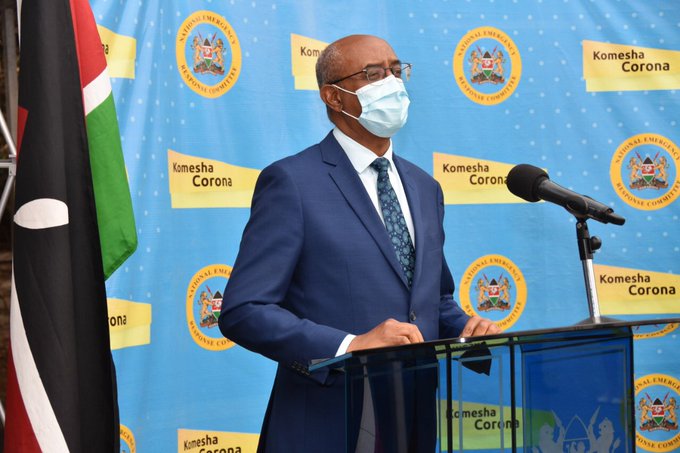
Kenya rolls out home-based isolation, care guidelines for COVID-19 patients

Kenya’s Ministry of Health on Wednesday launched its home-based isolation and care guidelines for COVID-19 patients even as the number of confirmed cases keep on rising.
Health Chief Administrative Secretary Rashid Aman said the protocol was developed to offer a solution in the management of increasing numbers and an anticipated surge in COVID-19 cases.
“As you are aware, due to our rising numbers of COVID-19 cases, it is increasingly becoming untenable to isolate all patients in our health facilities for management and care,” Aman said.
The guidelines are available to download from the ministry’s website and come into effect immediately, he noted.
The Kenyan government in recent weeks has admitted that its health facilities were being overwhelmed by the number of COVID-19 patients and that it planned to have hospitals discharge COVID-19 patients who are asymptomatic to go and recover at home.
The World Health Organisation recommends that any laboratory confirmed COVID-19 case be isolated and cared for in a healthcare facility. It, however, does take note of the fact that not all cases can be cared for at a health facility when cases begin to rise.
“According to the data that we have, 78 percent of infected persons admitted in our hospitals are either asymptomatic or mildly symptomatic and, therefore, can be managed at home provided proper laid down procedures are followed. The home-based isolation and care guidelines dictates these procedures,” he said.
The guidelines, Aman added, expound on key areas including eligibility, care procedures, medical monitoring, referral systems to health facilities (when necessary), criteria for determining recovery and community participation. The implementation of the guidelines will be supervised by medical and public health officials.
There will be community health volunteers who will do a daily assessment of home-based patients.
Aman said that the government was taking special measures to cater for people who live in informal settlements to deliver home-based care given the challenges that exist in such settings.
“Home-based care in informal settlements where households share small spaces will require identification of institutions within the community, institutions that meet the recommendations for providing such care.”
The government was working on identifying such institutions within the community where such home-based care can be provided, Aman said.
The government’s pronouncement is expected to allay fears on how such care will be achieved for people who live in informal settlements in the country, where the number of infections have begun rising.
Living conditions in these areas are characterized by poor sanitation, lack of access to clean running water and congestion. These conditions make it ideal for the virus to spread rapidly in communities living in such areas.
Aman appealed to all stakeholders in the care of COVID-19 patients to follow the guidelines and ensure that it trickled down to all informal caregivers of such patients.
Kenya has so far recorded 3,094 confirmed cases with 1,048 recoveries and 89 deaths from the disease.






